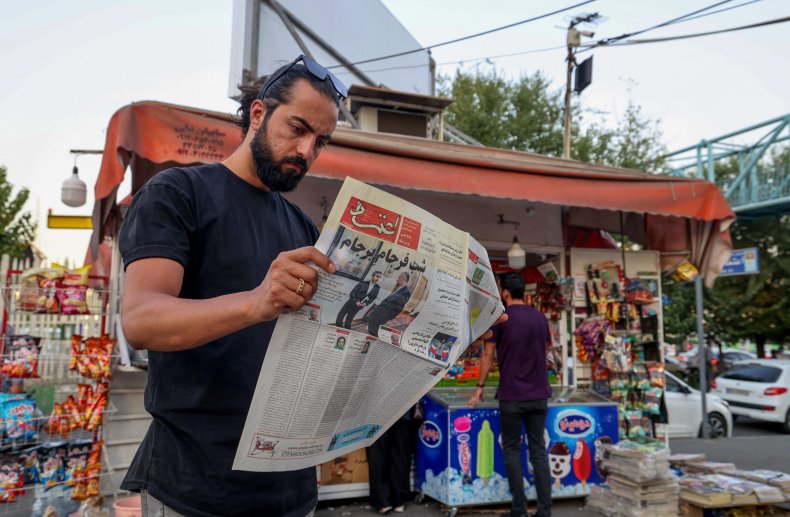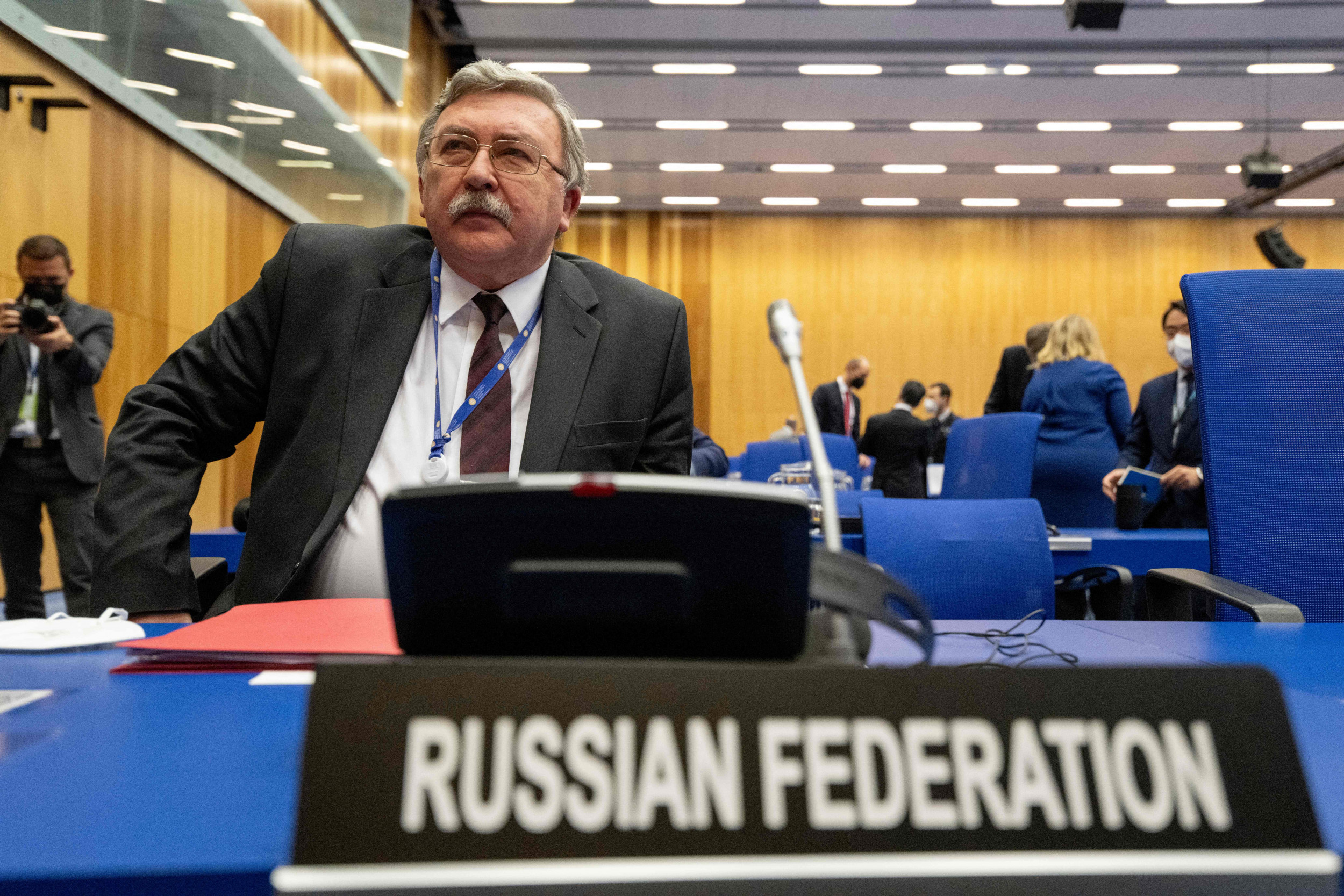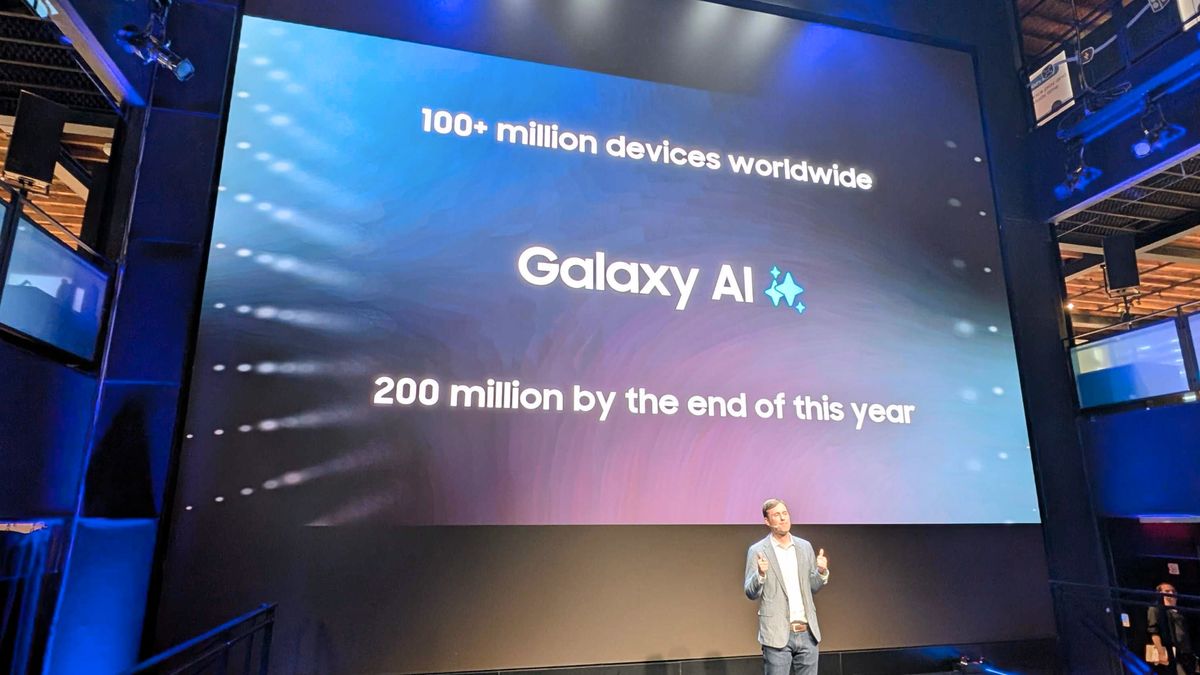As the United States weighed what many view as the final opportunity to restore the 2015 nuclear deal reached between Iran and major world powers, Russia’s lead negotiator said it was logical that Washington could accept Tehran’s latest recommendations.
Responding to an article by The New York Times detailing a newfound optimism among European officials toward the prospects of reviving the accord officially known as the Joint Comprehensive Plan of Action (JCPOA), Russian permanent representative to international organizations in Vienna Mikhail Ulyanov noted that, “There have been reasons for optimism before, but on previous occasions expectations were not met.”
“This time more than ever we have a great chance to cross the finish line at the #ViennaTalks,” Ulyanov tweeted Wednesday, “The final result depends on how the #US reacts to the last Iranian reasonable suggestions.”
Asked by Newsweek why such a deal seemed more likely than ever, Ulyanov said that this was “because the latest (and the last) Iranian drafting suggestions are not controversial.”
“I have no reasons to believe that they can be unacceptable for the US,” he added. “But let’s see and keep our fingers crossed.”
JOE KLAMAR/AFP/Getty Images
Also on Wednesday, State Department spokesperson Ned Price addressed the issue during a press briefing with reporters, noting that the situation remained largely unchanged from the previous day, when he confirmed that the U.S. had received Iran’s comments via the European Union.
Price said President Joe Biden’s administration was still “studying” the notes and remained “engaged in consultations with the EU as well as with our European allies on the way ahead.”
He also said the administration agreed with EU High Representative for Foreign Affairs and Security Policy Josep Borrell’s decision last week to issue a final draft text for the JCPOA as “what could be negotiated, has been negotiated.”
“We have been sincere, we have been steadfast in our commitment to seeking a mutual return to compliance with the JCPOA,” Price said, “and we’re grateful for Mr. Borrell and the efforts he’s undertaken to seek to get us there.”
Speaking at the same podium on Tuesday, Price said most of the “big issues” preventing Washington and Tehran from returning to compliance had “largely been settled.”
The JCPOA was endorsed seven years ago by China, France, Germany, Iran, Russia, the United Kingdom and the U.S. as part of a landmark arrangement in which Tehran agreed to severely limit its nuclear activities in exchange for a lifting of international sanctions. In May 2018, however, then-President Donald Trump abandoned the deal and instituted unilateral sanctions against Iran, which has responded by increasing enrichment, even as Iranian officials repeatedly deny any intention of building a nuclear bomb.
Joe Biden, who served as vice president under former President Barack Obama when the JCPOA was reached, has pledged to negotiate a return to the deal, but some nine rounds of talks in the Austrian capital of Vienna have so far failed to produce a new agreement. Borrell’s decision to circulate the latest draft, however, has prompted an effective deadline, to which Iran has answered.
Reached for comment on Iran’s response, Borrell’s office referred Newsweek to comments made Tuesday by spokesperson Nabila Massrali.
“At this point, everybody is studying the response and this is not the time or the moment to speculate on timing or whatever,” Massrali said. “I want to stress again that it arrived only last night and the way forward is basically for all the participants to look at it, for the U.S. to look at it.”
While European trio France, Germany and the U.K. have remained relatively quiet about the most recent round of JCPOA developments, Russia and China have amplified calls for the deal’s restoration.

ATTA KENARE/AFP/Getty Images
Russian Deputy Foreign Minister Sergey Ryabkov told the state-run TASS Russian News Agency on Wednesday that “the work in the Vienna format on restoring the JCPOA is at the finish line.”
“Not all issues have been closed yet, but intensive contacts on various levels continue,” he added. “The Russian delegation is working closely and productively with its colleagues.”
At a session of the ongoing 10th Nuclear Non-proliferation Treaty (NPT) Review Conference last week, Chinese Ambassador for Disarmament Affairs and Deputy Permanent Representative to U.N. Office in Geneva Li Song referred to the JCPOA as “an important diplomatic achievement in the new century and an important pillar for upholding the international nuclear non-proliferation system and peace and stability of the Middle East.”
“At present, the negotiation on the resumption of compliance with the JCPOA has again come to a critical juncture, with a new round of diplomatic efforts going on in Vienna,” Li said. “All parties concerned should resolve the differences with mutual respect and clear the obstacles for reaching the agreement.”
He called on the U.S. and Iran specifically to take the necessary steps to revive the accord.
“The U.S., as the one who created crisis on JCPOA, should fundamentally lift the unilateral sanctions and ‘long arm jurisdiction’ measures against Iran,” Li said. “Iran should, on this basis, resume implementation of its nuclear commitments. The discussions and actions in this Conference should be conducive to the diplomatic efforts in Vienna.”
Back in Tehran, movement among officials and lawmakers appeared to signal major developments were afoot.
Iran’s Islamic Consultative Assembly held a closed joint session of the parliamentary National Security and Foreign Policy Committee on Wednesday. Among those in attendance were Iranian Foreign Minister Hossein Amir-Abdollahian, Supreme National Security Council Secretary Ali Shamkhani and Energy Minister, Deputy Secretary Ali Bagheri and Atomic Energy Organization of Iran Mohammad Eslami.
Just as members of the U.S. Congress have called for a role in overseeing and approving Washington’s potential return to the JCPOA, Iranian legislators have demanded a say in whether or not reinstating the deal’s limits was in their country’s best interest.
The Iranian session ended with conflicting claims by lawmakers as to whether or not the deal would need to be first greenlit by the parliament, but with a consensus that some issues remained unresolved in the final text.

















Discussion about this post